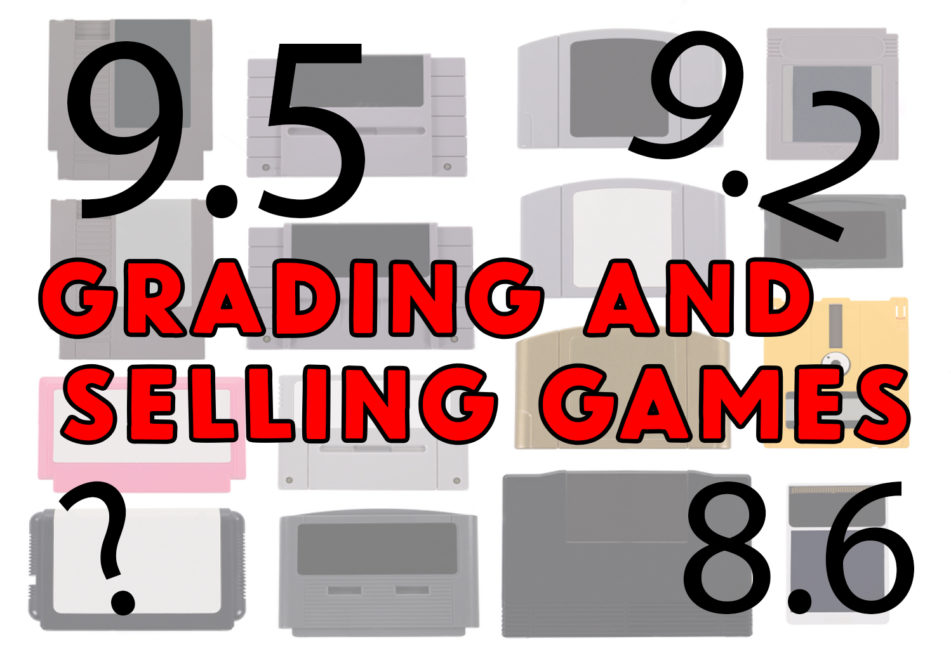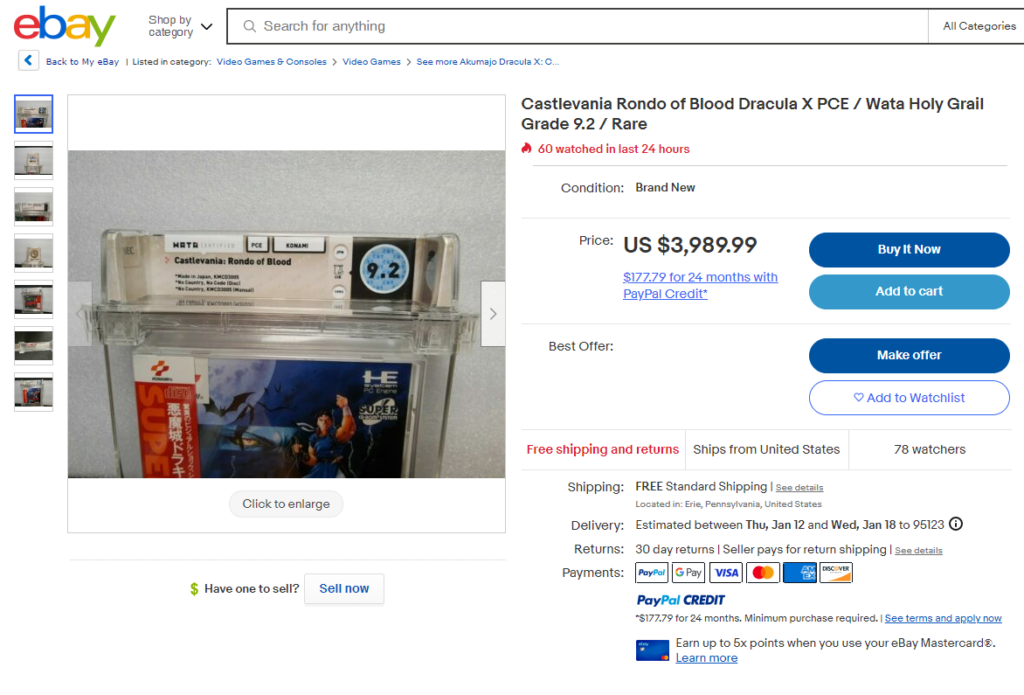
Grading and sealing console games with the Video Game Authority (WATA) can be a highly controversial topic, with both strong arguments for and against the practice. On one hand, grading games can provide a sense of authenticity and value to collectors, as it can confirm the rarity and condition of a particular game. On the other hand, however, grading can also be prone to fraud and can have negative psychological effects on collectors and gamers.
One major argument in favor of grading and sealing console games is that it can provide a sense of authenticity and value to collectors. By grading games, collectors can be assured that their game is genuine and has been evaluated by a professional organization for condition. This can be especially important for rare or valuable games, which can command high prices on the collectors’ market. However, even relatively common games can see inflated pricing such as the classic example of Super Mario Bros for the Nintendo Entertainment System (NES). A “9.8” graded copy of this very common NES game from the mid 80’s made headlines in late 2021 selling for a record 2 Million US Dollars causing many collectors to scratch their collective heads.
However, the practice of grading games is not without its flaws. One major concern is the potential for fraud. Some collectors may attempt to pass off counterfeit or altered games as genuine in order to obtain a higher grade and, in turn, a higher price. This can be difficult to detect, as even “experts” may not always be able to spot a fake game. This can lead to collectors paying exorbitant amounts of money for games that are not authentic, which can be a major disappointment and financial loss.

Fraud can also occur within the grading process itself. There have been instances where individuals or companies have bribed or otherwise influenced WATA graders in order to obtain higher grades for their games as well as WATA employees allegedly selling their own graded games at really high prices which is apparently against WATA’s policies. This undermines the integrity of the grading process and can lead to a lack of trust among collectors.
Another issue with grading console games is the psychological aspect of collecting. For some collectors, the pursuit of the “perfect” game can become all-consuming. This can lead to an unhealthy focus on grades and rarity, rather than on the enjoyment of playing the games themselves. Collectors may become obsessed with obtaining the highest possible grades for their games, leading to a never-ending cycle of buying and grading. This can be a major drain on both time and finances, and can take the fun out of collecting.
Additionally, grading and sealing console games can also create a hierarchy among collectors, with those who own graded games often viewed as more “serious” collectors. This can create a divide among collectors, with those who do not own graded games feeling like they are not part of the “elite” group. This can lead to feelings of inadequacy and exclusion, which can be harmful to both individuals and the collecting community as a whole.
Inflation of prices for relatively common games can also be a major issue in the collecting community. When a game is initially released, it may be priced at a certain level due to production costs and market demand. However, as the game becomes rarer and harder to find, its price can increase significantly on the secondary market. This can be especially true for popular or highly sought-after games. While this can be frustrating for collectors who missed out on the initial release and are now looking to purchase the game, it can also lead to speculation and hoarding, as individuals try to take advantage of the inflated prices.
Just this week, a console game enthusiast and vlogger Madlittlepixel reported on a reproduction copy of Castlevania Rondo of Blood for the PCEngine which was graded by WATA listed on eBay for several thousand dollars. The copy, sealed in a WATA graded case is clearly a PCEWorks reproduction and yet WATA still graded it as a legitimate copy. This seems like a pretty big error on WATA’s part and perhaps their practices should be evaluated. Additionally, the eBay seller sent a rudimentary “legal-eese” email to the vlogger demanding he remove all evidence of his defamation and libel from the Internet regarding the copy of Castlevania Rondo of Blood listed on eBay or face legal action. Rightly so, the vlogger refused and the content continues for consumption. With light investigation, the same seller is selling other PCEWorks PCEngine reproductions as originals for over inflated prices in their eBay store. One of the games clearly has the PCEWorks logo on the disc.
Overall, while grading and sealing console games with WATA can provide a sense of authenticity and value to collectors, it is not without its drawbacks. The potential for fraud, both in the grading process and in the selling of games, and the negative psychological effects of collecting can be major concerns. Can we trust WATA after this? Did we ever trust WATA? WATA mess.
